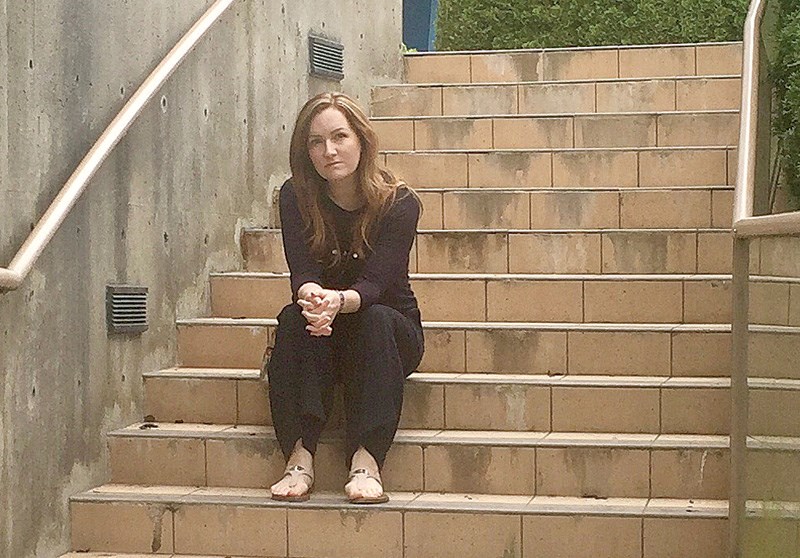“We’ll find ‘em in the end, I promise you. We’ll find ‘em. Just as sure as the turnin’ of the Earth.”
– The Searchers (1956)
On July 27, 1980, a woman committed an act of kindness outside Lions Gate Hospital.
At approximately 5:20 a.m. she scooped up a newborn boy from the hospital stairs. The baby had been left outside in a cardboard box.
Nurses named him Kenneth Allan. Suffering from medical complications, he died a few months later.
The child’s abandonment would likely have remained a mystery if not for one woman: his half-sister, Janet Keall.
Kenneth and Keall were two of several babies abandoned around Prince Rupert and Vancouver during the late 1970s and early 1980s.
For 22 years Keall has followed every unlikely lead and farfetched tip in an attempt to find out where she came from.
For two decades her search yielded little but in the past 18 months she’s “cracked the code.”
She’s found four abandoned half-siblings. She’s met her biological father.
But she still wonders about the woman who held her brother outside LGH that night. The woman who – however briefly – saved Kenneth Allan’s life.
“It’s funny, you don’t really want to get religious and say, “a saviour,” but she’s his first person,” Keall says. “I couldn’t imagine any more important person in his life.”
It’s something Keall wants to tell her face to face.
“Maybe she’ll think that, ‘Wow, that act was so small,’ but the reality was that it’s not,” Keall says.
Keall classifies herself as a foundling. And for those children who begin their lives lost, there’s no one more significant than the person who finds them.
“The people who find us, really in many ways they save us, they save our lives,” she says. “They bring us to safety, they bring us to get medical care, and it’s no different with baby Kenneth.”
. . .
Keall was found on Oct. 14, 1977.
At 18 Keall requested her live birth registration. It was blank.
From that point on she combed through miles of microfiche in the hopes of finding something about who she was. There were promising leads that turned out to be nothing more than some guy’s attempt to get a date with her. Another time there was a tipster who was fairly confident her mother was B.C.’s former lieutenant governor. (Absolutely false.)
Asked why she pursued the search so doggedly, Keall turns pensive.
“I’m a curious woman, I think,” she says. “A lot of it has to do with having a real curiosity for understanding yourself.”
Keall found she needed to understand herself in a different way.
“You don’t have that normal progression of creating your identity wrapped up in your family. Yes, OK, obviously I have my adoptive parents but as much as I love them we’re very different,” she says.
So, she searched.
Some people play golf as a hobby. Keall’s hobby was looking for her biological parents.
“For us foundlings, when you truly dive in – in the way that I did - and search, it can actually prove to be quite healing.”
The feeling that something was missing can manifest in destructive ways, according to Keall. She was aware she could be angry, that she could self-destructive.
But even before she found anything or anyone, the search was “motivating and therapeutic.”
. . .
Keall was never able to know her mother, having discovered her identity just months after she passed away, but she thinks about her a lot.
On her website, she envisions her mother arriving at the hospital, abandoning Kenneth and fleeing out of the fear she might be caught.
“As I sat on the stairs, I tried to put myself in Kenneth’s experience, and I thought of what he went through. I thought of the mystery woman who found him, and I wondered how this impacted her.”
She’s also learned about her older sister, who was left on a doorstep in Seal Cove in Prince Rupert, as well as a younger brother abandoned on the doorstep of a Prince Rupert apartment building.
“Our mother saw a light on upstairs,” Keall writes in a post on her website. “She banged on the door to get her attention and then ran away. She never wanted us harmed. That counts for something.”
But she has met her biological father.
“I’m his only child and he is just so happy,” she says. “There is a great deal of loss, but he’s very similar to me in that there’s no anger.”
She was also able to tell her biological father that he’s also a grandfather.
. . .
She knows where she came from. She knows her family’s medical history. She knows which old country is hers. She’s added hundreds of names to what had been a relatively scant family tree.
Now living on Prince Edward Island, she wants one more name.
There are unexpected benefits to being a foundling, Keall says, noting that children who’ve never known their biological parents can be a little kinder.
When she lived in Vancouver, Keall watched throngs heading down Burrard Street and wondering if that face in the crowd was a cousin, or a sister, or a parent.
“In the absence of having answers and knowing who my clan was and knowing where I quote-unquote belonged and came from in this world, I just kind of embraced the fact that we’re all family. We’re all part of the human family,” she says. “Maybe I won’t know, but we’re all in it together.”
That spirit is embodied by the mystery woman who scooped up baby Kenneth 37 years ago, according to Keall.
“I want to find this woman and I want to thank her. I want to know she is.”
Keall accepts tips at 604-260-6890 or through withgreatabandon.com
This article has been amended to correct details about Keall's sister, who is older, not younger than Keall, as a previous version of the story stated.



